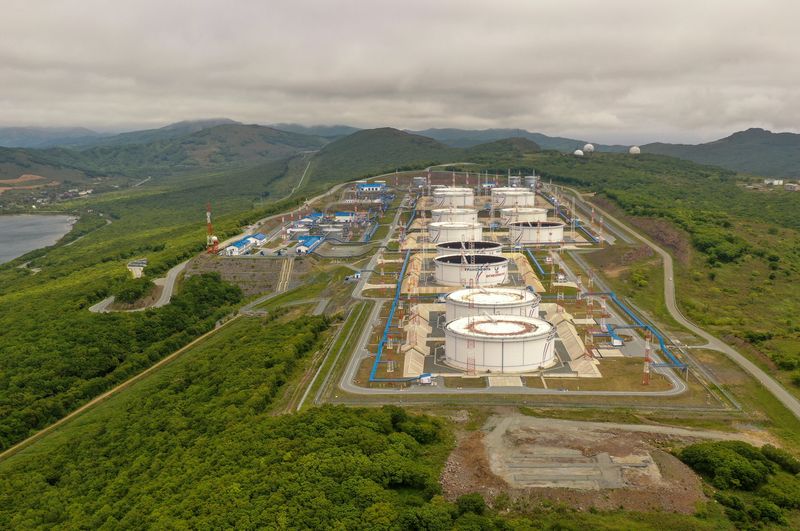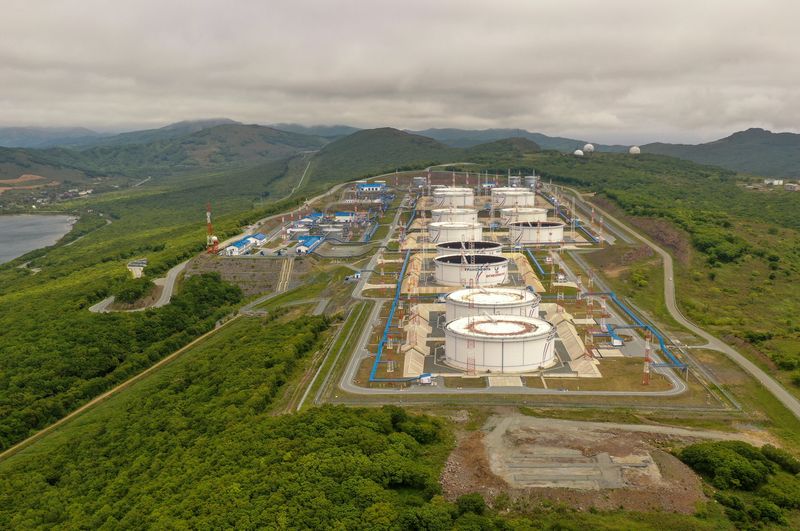
By Georgina McCartney
HOUSTON (Reuters) – Oil prices rose on Thursday with all eyes on key producing countries in the Middle East and mounting concerns that a widening regional conflict could pose a threat to global crude flows.
Brent crude futures were up $3.59, or 4.86%, at $77.49 a barrel by 1:08 p.m. EDT. U.S. West Texas Intermediate crude futures rose $3.58, or 5.11%, to $73.68.
Meanwhile, U.S. gasoline futures gained more than 5% during the session.
Brent futures reached an intraday high of $77.65 per barrel, the strongest since Aug. 30, while WTI futures peaked at $73.95 per barrel, a one-month high.
Market fears are mounting over the possibility that Israel might target Iranian oil infrastructure, raising the spectre of retaliation from Iran.
“This is going to really test the mettle of the market because up until now the risk to supply has been downplayed, as there has been no disruption, so this could be a game changer,” said Phil Flynn, senior analyst for Price Futures Group.
“It is raising a lot of bullish questions. The market has got to buckle up its seat belts and get ready for some volatility,” he added.
There are concerns that such escalation could prompt Iran to block the Strait of Hormuz or attack Saudi infrastructure, as it did in 2019, said Panmure Gordon analyst Ashley Kelty.
The strait is a key logistical chokepoint through which a fifth of daily oil supply passes.
Ministers from Gulf Arab states and Iran attended a meeting of Asian nations hosted by Qatar to discuss de-escalating hostilities between Israel and Iran, three sources told Reuters on Thursday.
The Gulf Arab states sought to reassure Iran of their neutrality in the conflict on concerns that further violence could threaten Gulf oil facilities, two of the sources said.
CONFLICT DEEPENS
Israel’s military told residents of more than 20 towns in south Lebanon to evacuate their homes immediately on Thursday as it pressed on with its cross-border incursion and struck Iran-backed Hezbollah targets in a suburb of Beirut.
Israeli Prime Minister Benjamin Netanyahu said Iran would pay for its missile attack against Israel on Tuesday while Tehran said that any retaliation would be met with “vast destruction,” stoking fears of a wider war.
“The intensifying conflict in the Middle East is generating significant supply concern in the global crude market,” Rystad Energy’s chief economist, Claudio Galimberti said in a note on Thursday.
“The potential for supply disruptions – particularly, but not exclusively from Iran – increases as the fighting intensifies,” he added.
Curbing oil gains on Thursday, the National Oil Corp (NOC) lifted the force majeure at all Libyan oilfields and terminals, the state oil company said in a statement on its Facebook (NASDAQ:META) page, potentially ending a crisis that has heavily reduced oil output.
Meanwhile, U.S. crude inventories rose by 3.9 million barrels to 417 million barrels in the week ended Sept. 27, the Energy Information Administration said on Wednesday, compared with Reuters poll expectations of a 1.3 million barrel decline.
“Swelling U.S. inventories added evidence that the market is well supplied and can withstand any disruptions,” ANZ analysts said in a note.

Fears have been tempered by OPEC oil spare output capacity and the fact that global crude supplies have yet to be disrupted by unrest in the key producing region.
OPEC has enough spare capacity to compensate for a full loss of Iranian supply if Israel knocks out that country’s facilities.
This post is originally published on INVESTING.



